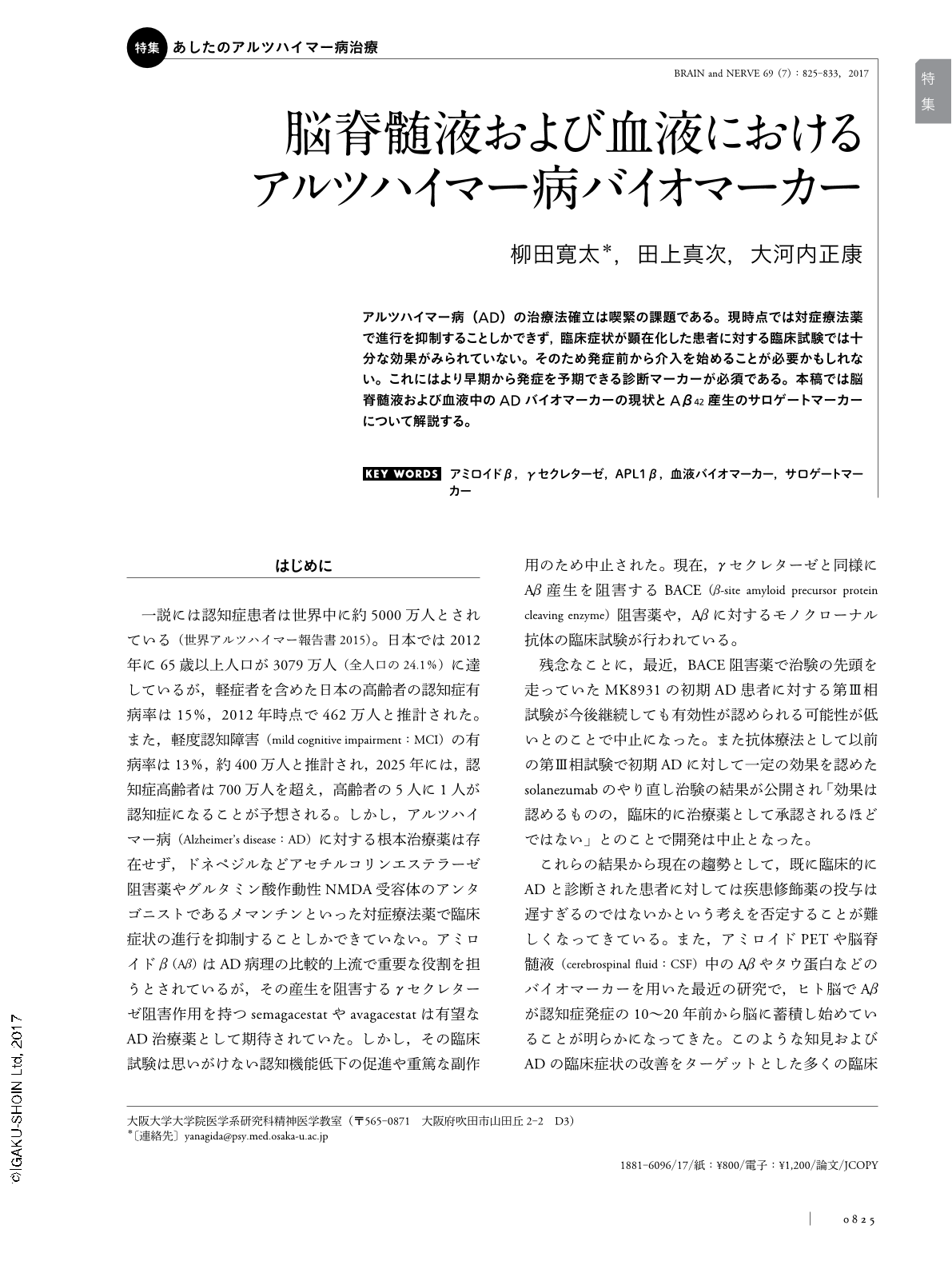Japanese
English
- 有料閲覧
- Abstract 文献概要
- 1ページ目 Look Inside
- 参考文献 Reference
アルツハイマー病(AD)の治療法確立は喫緊の課題である。現時点では対症療法薬で進行を抑制することしかできず,臨床症状が顕在化した患者に対する臨床試験では十分な効果がみられていない。そのため発症前から介入を始めることが必要かもしれない。これにはより早期から発症を予期できる診断マーカーが必須である。本稿では脳脊髄液および血液中のADバイオマーカーの現状とAβ42産生のサロゲートマーカーについて解説する。
Abstract
To cope with an aging society, development of disease-modifying drugs for Alzheimer's disease (AD) is essential. Currently, only symptomatic treatments that suppress clinical manifestations are available. Amyloid-β42 (Aβ42) is an AD-related pathogenic molecule that triggers development of AD pathology; thus, decreasing Aβ42 in the brain is a promising candidate for AD therapy. Numerous pharmaceutical companies have developed therapeutic drugs against Aβ42, such as β-secretase inhibitors, γ-secretase inhibitors, and anti-Aβ monoclonal antibodies, but in clinical trials for patients with mild to moderate AD, these drugs did not meet the expected endpoints. These results suggest that earlier administration of these drugs to individuals who have not yet developed cognitive decline, but have AD pathological changes in the brain or high risk of developing these changes, may be beneficial. To enable such early treatment, preclinical AD biomarkers are required. In this review, we comment on current AD biomarkers in cerebrospinal fluid and in blood. We also explain CSF/blood APL1β, which is a candidate surrogate marker for Aβ42 in the brain.

Copyright © 2017, Igaku-Shoin Ltd. All rights reserved.


